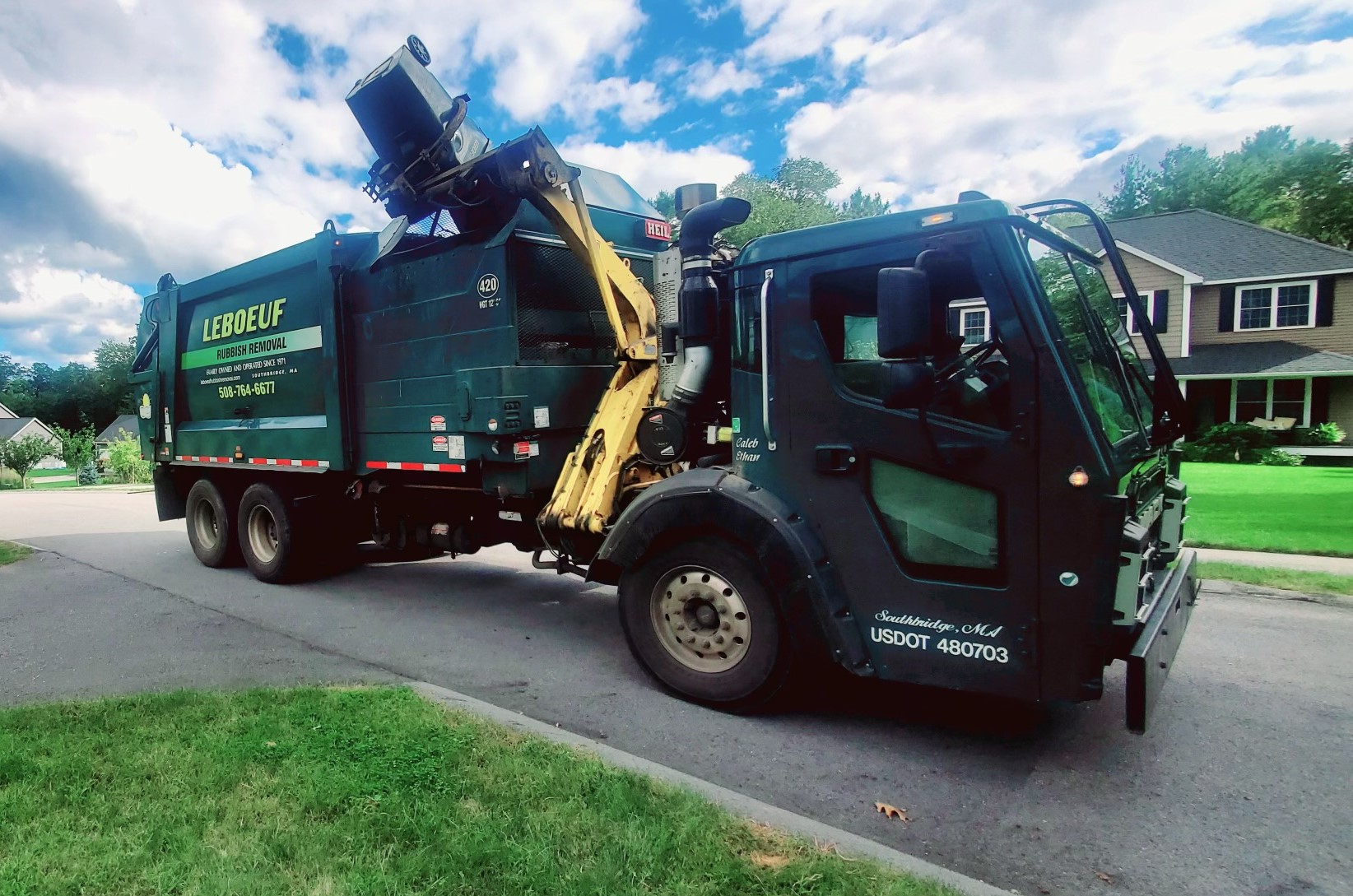Due to the inclement weather coming for Monday, February 23 Leboeuf Rubbish has decided to close. All routes will be on a one day delay.
Understanding Waste Disposal Bans for Massachusetts and Connecticut
Whether you’re just taking out your home’s trash or embarking on a massive project with a dumpster for rubbish, it’s important to know what can and cannot go in the garbage. Waste disposal bans are a catch-all for recycling, hazardous waste, and other landfill initiatives designed to reduce the amount of garbage that ends up in landfills as well as lessen the environmental impact. Learn more about waste disposal bans for Massachusetts and Connecticut, two states we serve here at LeBoeuf Rubbish Removal.
Massachusetts Waste Disposal Ban
Massachusetts waste disposal bans have been put into place over the years, starting with hazardous waste and recycling, and more recently including mattresses and commercial food waste. The Massachusetts Department of Environmental Protection (MassDEP) has a full list of waste disposal bans here, but we’ve broken it down to the basics below:
- Construction Materials: Including asphalt, brick, concrete, treated and untreated wood waste, and clean gypsum wallboard.
- Recyclables: Including metals, glass and metal containers, recyclable paper products, and single-resin narrow-necked plastic containers.
- Bulky & White Goods: Specific bulky products like mattresses and whole tires, alongside large home and commercial appliances, such as fridges and ovens.
- Yard Debris & Food Waste: Leaves and other yard waste, alongside commercial food materials (such as grocery or food processing food waste).
- Hazardous Waste Products: Cathode ray tubes and lead acid batteries are both common household items that contain hazardous heavy metals.
Connecticut Waste Disposal Bans
Connecticut’s waste disposal comes in several sections: materials designated (mandated) for recycling, items banned from disposal, items covered under a stewardship program, items recycled through a deposit program, and commercial-specific laws on organic recycling. See the Connecticut Department of Energy & Environmental Protection (CT DEEP) page, Recycling: It’s the Law, for more details.
- Items Designated for Recycling: This includes glass and metal beverage containers, PET, PETE #1 & HDPE #2 plastic containers, recyclable paper goods, and scrap metal (including appliances).
- Organic Materials: Residential grass clippings are banned from disposal. Commercial generated source separated organic materials are regulated for certain businesses (see Commercial Organics Recycling Law).
- Household Covered Electronic Devices: This includes televisions, monitors, printers, and computers.
- Stewardship Programs: This includes paint, mattresses, mercury thermostats, and lead-acid or mortal vehicle batteries.
Dealing with Recycling and Banned Waste
Whether you’re an individual, business, or community trying to navigate recycling and garbage requirements in MA & CT, you don’t have to go it alone. Consulting with a local rubbish removal and recycling company can give you a better idea of your options for disposal, including additional waste bans and recycling initiatives in your area.
LeBoeuf Rubbish Removal is just such a company. We have over 50 years of experience helping Massachusetts and Connecticut individuals and organizations tackle garbage and recycling, from curbside pick-up to big projects. Learn more about us, our Residential and Commercial services, and other resources we provide for our community, like this blog. Contact us today with any questions or to get started. We are at your disposal.



